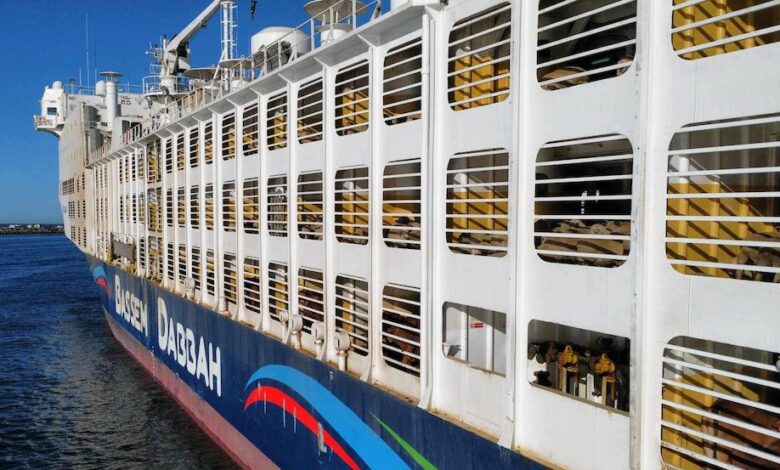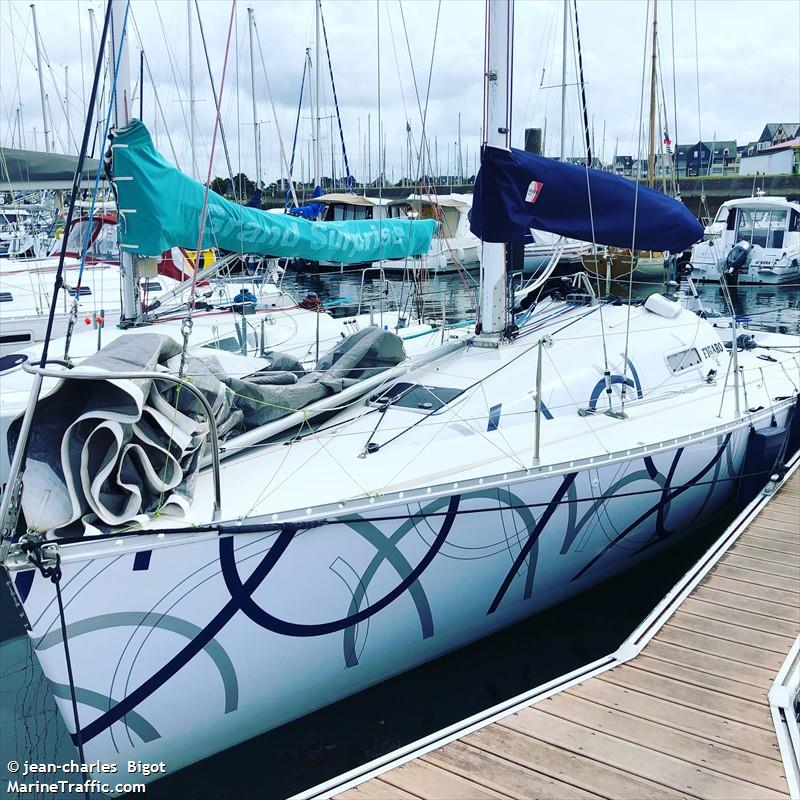Re-exporting animals from stranded livestock carrier no longer an option

Some 16,000 Australian sheep and cattle stranded on the Bahijah livestock carrier currently moored off Perth will not be re-exporting the cattle after the country’s regulator shot the proposal down.
The animals have been on the water for a full month. Several hundred cattle head were unloaded from the 2010-built, 7,900 dwt carrier on Friday but the plan by Israeli-based exporter Bassem Dabbah Shipping to re-export the rest of the animals to the Middle East via the Cape of Good Hope was not approved by Australia’s Department of Agriculture.
The application to re-export the animals was submitted on January 26. Exporting to the Middle East along the longer 33-day route along Africa was a way to evade any possible Houthi attacks on ships along the shorter Red Sea route, which was the exact reason for giving the order to the vessel to return to Australia.

According to an update by the Department of Agriculture, the exporter was not able to comply with the requirements of the Export Control Act 2020. The regulator was not assured that the requirements would be met before the livestock were imported into the importing country.
Also, the Department stated that the exporter did not ensure that the arrangements for the transport of the livestock to their final overseas destination were “appropriate to ensure their health and welfare.”
“The next steps for the livestock onboard the vessel are commercial decisions for the exporter to make. A range of options remain available to the exporter, and the department stands ready to assess any future application submitted by the exporter,” the Department of Agriculture said in a statement.
The regulator also stated that it was continuing to work with relevant stakeholders to “manage the health and welfare of the livestock and uphold Australia’s biosecurity.”
It has again provided assurances that Australia’s biosecurity and the health and welfare of the animals onboard were still its “highest priorities.”
The Department again gave assurances that the livestock on the vessel was still in good health and they remained under veterinary care and supervision with no suspicion of exotic pests or diseases within the livestock.
However, over the weekend some of the several hundred cattle unloaded from the Bahijah died with those deaths currently under investigation. Australian Chief Veterinary Officer, Dr Beth Cookson, did not provide an exact number but said that the mortality rate was low.

 livestock carrier currently moored off Perth will not be re-exporting the cattle after the country’s regulator shot the proposal down.
livestock carrier currently moored off Perth will not be re-exporting the cattle after the country’s regulator shot the proposal down.
Bless you for your ongoing reporting, I have not seen any other reports so your support of these beautiful stranded animals highlights this issue and their welfare.
You have made a difference keep up the good work!
Thank you for your endorsement. I hope this situation is resolved as fast as possible.
Please keep this topic alive. It’s discracful that the Australian government can sit by and not take control of this situation one way or another. They need quarantine on Australian soil, and be properly welfare assessments to be made. Thankfully this will bring animal welfare into the frame and hopefully an end to live exports.
We are trying to do so. Please read today’s opinion piece by Dr Lynn Simpson, a well-known former live export veterinarian, discussing the topic at length:
https://splash247.com/live-animal-export-the-animals-who-returned-home-to-have-their-stories-told/
How disgusting treating animals like chattels they should be released in Australia to a bunch of sanctuaries. Stop eating animals
They feel pain and suffer have compassion
The lord shall judge some day .
My sentiments exactly 👏👏😭💔
I think the same this is terrible for these beautiful sentient beings 😔
It’s disgusting I agree Karen, it’s unimaginable the suffering these poor animals are experiencing on these torture chambers they are forced into! For humans greed of the flesh.
Thank you I’m not one of these humans if you can call them that!! May there suffering come to a swift end urgently !! Always and forever Vegan for the voiceless!
Thank you for the update on this issue. It has been a topic that has profoundly impacted me. I’m so relieved to hear that re-export has been rejected. I felt faint at the thought of these Animals being re-loaded and condemned to a fate worse than death. The department needs to think outside the square and find innovative solutions to end live animal export for good. Australians don’t want to see farmers in ruin, but how knowingly subject animals to such obvious suffering? No industry is exempt from seeking solutions to outdated Operating and Supply Chain systems, and it’s proven time and time again the exporters responsible for the Animals leak them to the general public at destinations where there are no protections or Animal welfare standards to ensure humane treatment and slaughter. Live Animal Export supply chains have very real and confronting failures so I say NO MORE to Live Animal Export.